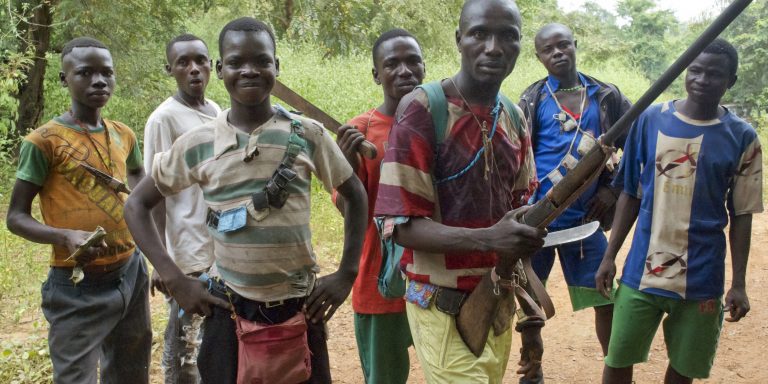INTELBRIEF
February 20, 2019
IntelBrief: A Tenuous Peace Deal in the Central African Republic

- Earlier this month, fourteen armed groups from Central African Republic agreed to a peace agreement following talks in Khartoum, Sudan.
- The Central African Republic has been devastated by instability and widespread ethnic conflict since 2013 following a coup that same year.
- Government control does not extend beyond the capital and the humanitarian situation is dire, with nearly a half million refugees.
- There is a critical need to integrate opposing armed groups into a national army and ensure that each group has political representation.
.
Earlier this month, fourteen armed groups from Central African Republic agreed to a peace agreement following talks in Khartoum, Sudan, following negotiations which began on January 24. The deal has been welcomed internationally, but stakeholders remain cautious. The peace agreement is the eighth since violence first broke out in 2012, and concern remains about the potential for violations of the peace agreement and a resumption of intense fighting among the multitude of armed groups. CAR has been affected by decades of violence. Seleka groups, which are primarily Muslim, began an insurgency in 2012, and after taking control of the capital, Bangui, launched a coup in early 2013, deposing then President Fancois Bozize. In response, anti-balaka militias (mainly Christians) launched counter-attacks, which escalated significantly by the fall of 2013 and targeted Muslims across the country. The scale of the crisis necessitated a U.N. peacekeeping force, which was instituted in 2014. The African-led International Support Mission in the Central African Republic is comprised of 15,000 peacekeepers and aims to protect civilians and disarm militia groups, but it has had little success in achieving these objectives due to the number of armed groups in the country.
There was renewed optimism following the election of an internationally-recognized government in March 2016, with hopes that President Faustin Archange Touadera would help to resolve the conflict. To date, these hopes have not been realized. Even though fighting between Muslims and Christians has decreased, and the Seleka and anti-Balaka groups split into smaller factions, the government’s authority still does not extend beyond Bangui. Eighty percent of the country is controlled by 14 anti-Balaka and ex-Seleka factions, with each of these groups fighting for influence and control of the country's natural resources. Toward the end of 2018, violence spiked among armed groups and also with the UN peacekeeping forces. One likely flashpoint is the struggle for control of CAR’s vast natural resources—gold, diamonds, and uranium. With the state’s authority limited to the capital and peacekeeping forces and national army weak, it will be difficult to ensure that armed groups do not attempt to seize control of areas with access to these resources.
The civilian and humanitarian implications of the violence are devastating, with thousands killed. Because of the damage to the country’s economy, approximately seventy-five percent of CAR is living under the poverty line. Further, according to the UN Office for the Coordination of Humanitarian Affairs, there are almost 650,000 internally displaced persons and over 573,000 refugees throughout CAR. Most of the Muslims who have not fled the country are living in the PK5 district of the capital, and still fear for their safety. Armed groups have frequently targeted humanitarian staff, making the delivery of aid extremely difficult. Accordingly, the latest peace agreement faces many hurdles beyond enforcing peace between the different armed groups. While some optimism remains, considering recent local truces have been successful in limiting violence among armed groups, this phenomenon has not been replicated at the national level.
There is a critical need to integrate opposing armed groups into a national army and ensure that each group has political representation. Proponents of the political process believe that the peace agreement will lead to improved stability following years of conflict. What is urgently needed to end the violence is protecting civilians and minorities, as well as humanitarian workers who can enable aid to reach those in dire need of assistance. In addition to regional support from other African nations, likely other influential power brokers including France and Russia will need to help enforce the peace. But it is not only external powers that will play a role, but regional states as well. To help safeguard the political process and provide an enforcement mechanism, neighboring states with influence over rebel factions, notably Chad and Sudan, will be instrumental in exerting pressure on armed groups to adhere to the peace agreement.
.
For tailored research and analysis, please contact: info@thesoufancenter.org
[video width="960" height="540" mp4="https://thesoufancenter.org/wp-content/uploads/2019/02/IB-0220.mp4" poster="https://thesoufancenter.org/wp-content/uploads/2019/02/AP_19037587192441.jpg"][/video]